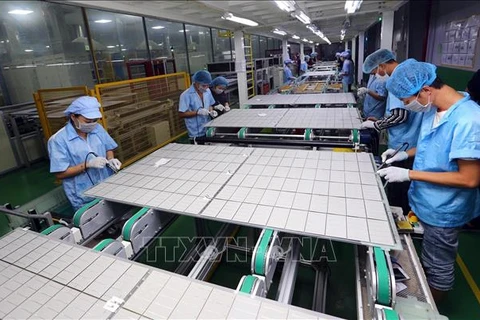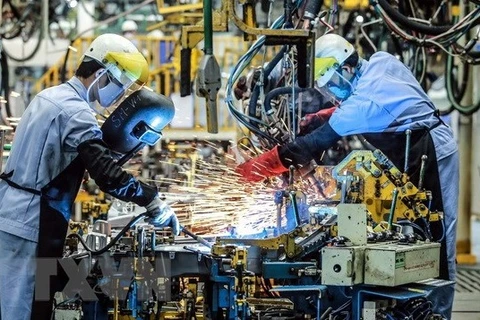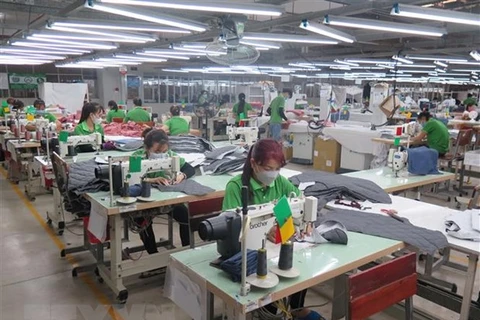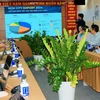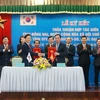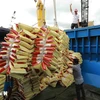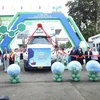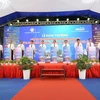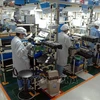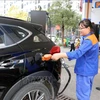Hanoi (VNA) – Today’s Vietnam is an economic dynamo that offers helpful lessons for peers, wrote Richard Heydarian, a Manila-based opinion columnist, given that he has witnessed how Vietnam transformed in every dimension of collective life over the past decade.
Whereas scooters used to dominate the roads, now German cars, sport utility vehicles, and locally-made cars have become ubiquitous in Hanoi and Ho Chi Minh City, he said, noting that what’s particularly noteworthy is the sheer number and elegant design of cars by the VinFast automotive company, which was just established in 2017 by a local billionaire.
Earlier this year, the Vietnamese company announced that it would set up a 4-billion-USD factory complex in North Carolina to produce, among other things, electric vehicles. Additionally, global tech giants are doubling down on Vietnam. Recently, Apple announced that Macbook and Apple Watch products would be manufactured via Luxshare Precision Industry and Foxconn in Vietnam for the first time in history.
According to Heydarian, today, almost every branded product, from fashion (Armani Exchange) and sports (Adidas) to electronics (Samsung), carries the “Made in Vietnam” tag. This is nothing short of transformational for a country that grappled with decades of devastating warfare throughout the latter half of the 20th century.
He moved on to outline three lessons for others to learn from Vietnam.
Heydarian said that Vietnam emphasises basic education, especially in math and sciences. As a result, although still a relatively emerging country, Vietnam ranked eighth in the world when it was first included in the prestigious Programme for International Student Assessment (Pisa) by the Paris-based Organisation for Economic Cooperation and Development (OECD). It means that average students in the Southeast Asian country beat the bulk of their rich-nation counterparts in terms of basic proficiency in math and sciences and reading comprehension.
The neighbouring Philippines, which has had a higher per capita income than Vietnam until recently, ranked at the bottom of Pisa. In the World Bank’s recent report on “learning poverty,” which assesses difficulties in reading comprehension among elementary students, Vietnam’s numbers (18%) were incomparable to the Philippines' (91%).
Automobile manufacturing of Hyundai Thanh Cong Vietnam Auto Manufacturing Corp at Ninh Binh’s Gian Khau Industrial Park. Illustrative image. (Photo: VNA)
He continued his second lesson from Vietnam is their optimal mix of agricultural and industrial development. Instead of excessively relying on the services sector as in India and the Philippines or extractive industries as in Indonesia, Vietnam has simultaneously become an agricultural and manufacturing powerhouse.
Thanks to its proactive trade, industrial, and agricultural policies, the Southeast Asian country has become one of the largest exporters of staple food, such as rice, and high-value-added electronics. As a result, its export-oriented economy even managed to post economic growth in 2020 despite the impacts of the COVID-19 pandemic.
Vietnam’s effective population management programmes and diversified economy also explain relatively low poverty and hunger incidents. Though still seemingly rustic, Vietnam’s major cities are also bereft of mind-boggling inequalities, which are fully displayed in the large slums of Manila, Jakarta, and Bangkok.
The third lesson from Vietnam is its unique approach to the outside world. On the one hand, Vietnam has “globalised” and opened itself to the world under the “Doi Moi” (renewal) economic reforms without compromising its authentic social values, vibrant food culture, and distinct architecture.
Moreover, Vietnam has proactively cultivated strong economic relations with the West, finalising free trade pacts with the US, Canada, Australia, and Europe, as well as with the East, from Japan and the Republic of Korea to India and Russia./.
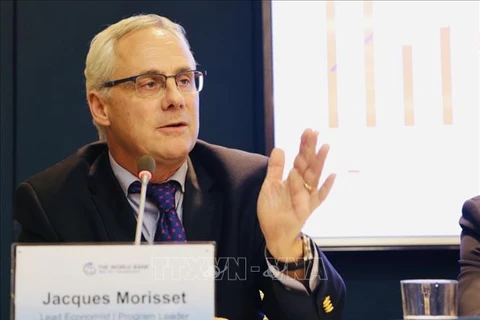
WB official optimistic about Vietnam's 2022 GDP growth prospect
Vietnam's target of bringing its GDP growth to 6-6.5 percent in 2022 as set in the recent session of the National Assembly is entirely possible if it can effectively control the COVID-19, and improve the supply – demand balance, an official of the World Bank (WB) has said.

